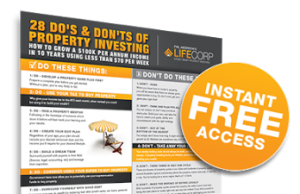There is basic information an investor will want to see before they become interested in you and, your online venture.
But basically, it’s all about returning tons of money to the investor. It’s never about making you a multi-millionaire. This is what you must show on every piece of your proposal to potential investors.
Below are some of the most crucial questions you must have answers for, before you even speak to an investor.
Is your online business attractive to investors?
First of all, look at these questions and honestly answer yourself:
Are people willing to use it?
You should conduct a focus group, as nothing is worse than building a great product that nobody wants. After getting the results (E.g. 1,000 people confirm they like your idea), include it in your investor presentation to prove there is demand.
Why should customers use your business over what’s already out there?
Most business owners have difficulty answering this. Your answer for this must be compelling. Don’t just answer something like “We’ve got excellent customer service” or “Our design is prettier than our competitors”, as it’s just not going to be enough.
Is your market big enough to give the expected ROI?
Christopher Golis mentioned in his book Enterprise & Venture Capital, if the potential market of your business is lower than $100 million, venture capitalists will pass the investment opportunity.
So, if you’ve honestly answered these questions, is your business an attractive investment opportunity?
How big is your customer base?
It’s a simple formula:
High Valuation = Massive Traffic + Massive Customer Database
The number of customers you have is your main value booster. Skype was valued at $8.5 billion due to having 65 million daily users. Instagram was bought by Facebook at $1 billion for its 30 million users, despite having zero revenue.
Having initial early demand, and continuous traffic, are also crucial to show potential investors that you already have a proof of concept. The next step is, whether you can present to potential investors the marketing strategies needed to enlarge the database in order to achieve a premium on the valuation.
Make sure you utilise strategies to increase traffic and enlarge databases such as, hiring the best SEO expert and, doing joint venture promotions with other online businesses.
However, to achieve a high valuation, even with a massive database, will come down to whether you have the A-Team, or talent in place, to execute all the plans and strategies.
If not, you need to have an answer about how do you plan to bring these skill-sets on board.
Can you offer ROI of at least 10 times the investor’s money?
Investing in early stage private companies is an extremely high risk investment.
If you are still in the start-up phase and cannot offer about 10-20 times the investment upon exit, investors may choose to put their money in less risky investments.
Why should investors be interested in your company and not another proposal? Your answer better not be because this will be a big break, or a revolution, for everyone involved. You should highlight the realistic plans and strategies that will give a big return and, a successful exit.
What are the worst things that could happen?
We all know that we don’t live in a perfect world. And, that the best laid plans can come undone. Usually without any warning.
So, expect potential investors to ask about how you plan to manage these types of situations when they arise.
You will need to explain your plan to mitigate all of the potential risks to your strategy, and company. Here are some the common risks you must consider, and have solutions for:
- Missed deadlines or, a failure in the website/software development
- The potential market size is not as big as you thought it was
- Failure to meet projections or achieve milestones set in the business plans
- Under-qualified or poor management team
- The capital raised is insufficient to commercialise the business or, to attract enough customers
Your business success is also measured by the quality of your Plan B and Plan C. So, make sure you have a Plan B, and a Plan C.
Also, make sure you have someone on your board who strongly understands finance and risk management.
Do you have high quality exit plans and strategies?
Most businesses only mention about going for an IPO or, exiting to larger corporations in three to five years.
It would be far more compelling to investors if you have detailed exit and succession plans. These will outline what needs to be done from now, to the day you sell your business.
The better you are at showing this, the more the investor will see that you are aware of what needs to be achieved to give the desired ROI.
As part of your business plan, you can present a schedule for when to start analysing the acquisitions history of your potential buyers. This will indicate the right time to approach the mergers and acquisition departments of these companies to establish a relationship. Your plan should also show when to commence internal due diligence in order to de-risk the business, and be ready for sale.
Ultimately, don’t forget to recruit enough skills on your board or, in a corporate advisor, to assist you with the exit process.
So, if you’ve got at least all of this covered, you are then ready to start talking to investors.
Edwin Lucas is the non-executive director of Digital Office Builder, an online business development company in Melbourne. He also educates online businesses about various online marketing strategies and how to raise equity capital from private investors. Connect with Edwin Lucas on LinkedIn







![Generating Web Traffic with Mark Middo and James Tuckerman [FREE REPORT]](https://anthillonline.com/wp-content/uploads/2015/08/Capture3-100x75.jpg)
![Five essential ingredients for a humming homepage with James Tuckerman [FREE REPORT]](https://anthillonline.com/wp-content/uploads/2015/07/homepage-checklist-1680-01-copy-100x75.png)
![Do you have happy staff? 5 ways to improve performance [FREE DOWNLOAD]](https://anthillonline.com/wp-content/uploads/2016/06/chris-smith-cheatsheet-04c.pdf-Box-2016-06-30-20-45-20-100x75.png)
![Need cash for your startup or innovation? Here’s the Ultimate Grant Guide for Innovators and Startups [FREE DOWNLOAD]](https://anthillonline.com/wp-content/uploads/2015/10/INNOVATORS-GRANT-GUIDE-NFSU-page-spread-100x75.png)
![How did Sean Clark build a $300 million turnover company from a $500 AdWords investment? [CHEAT SHEET]](https://anthillonline.com/wp-content/uploads/2016/03/SEAN-CLARK-cheatsheet-NSFU-02.pdf-Box-2016-03-16-14-43-21-100x75.png)
![Does ‘no’ mean ‘not yet’? Only an entrepreneur would think like that! [VIDEO]](https://anthillonline.com/wp-content/uploads/2014/05/KarenCheng2-300x350.jpg)

![Wanted: One highly stressed individual to do live product testing in an airport [VIDEO]](https://anthillonline.com/wp-content/uploads/2013/02/Nivea-300x350.jpg)
![Looking for your perfect tech developer? [VIDEO]](https://anthillonline.com/wp-content/uploads/2012/12/equitycake-300x350.jpg)
![How Master the Art of Sales Even if it Makes You Feel All Weird and Icky Inside with Phil Anderson [CHEAT SHEET]](https://anthillonline.com/wp-content/uploads/2015/08/PHIL-ANDERSON-COVER-300x194.png)
![How to secure lucrative sponsorships in five steps [CHEAT SHEET]](https://anthillonline.com/wp-content/uploads/2016/02/jackie-fast-meme-04-100x75.jpg)
![Five ways to manage your time by managing yourself, with Helen Ebdon [CHEAT SHEET]](https://anthillonline.com/wp-content/uploads/2015/07/ebdon-3d-cover-01--100x75.png)
![Four principles to creating dedicated customers…or zombie loyalists with Peter Shankman [Free report]](https://anthillonline.com/wp-content/uploads/2015/11/Screen-Shot-2015-11-26-at-11.16.26-100x75.png)
![New Zealand’s Xero eyes US IPO, further disruption as subscribers increase [INFOGRAPHIC]](https://anthillonline.com/wp-content/uploads/2014/07/sruuuuujana-212x194.png)
![Ever wonder if your ‘content marketing’ is really just crap? You gotta see this! [INFOGRAPHIC]](https://anthillonline.com/wp-content/uploads/2014/08/content-100x75.jpg)
![7 Business Lessons From Game of Thrones [INFOGRAPHIC]](https://anthillonline.com/wp-content/uploads/2014/10/infographic-games-of-thrones-041-100x75.jpg)
![How to build your own Media Empire… In seven steps with Nathan Chan [INFOGRAPHIC]](https://anthillonline.com/wp-content/uploads/2014/10/Nathan-Chan-Infographic-e1413419529176-100x75.jpg)
![5 Business Lessons From Tinder [INFOGRAPHIC]](https://anthillonline.com/wp-content/uploads/2014/10/Tinder-Elegant-Infographic-100x75.jpg)



